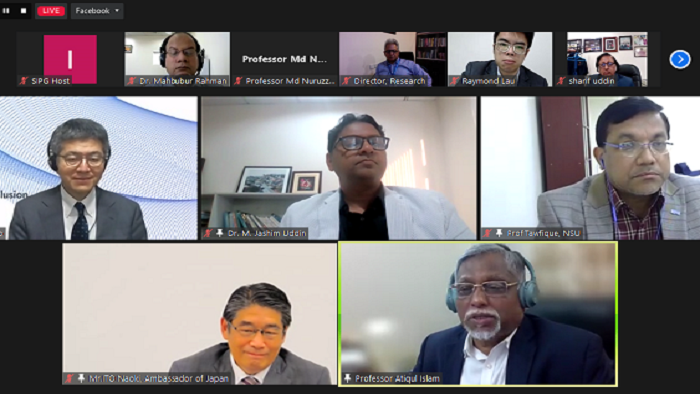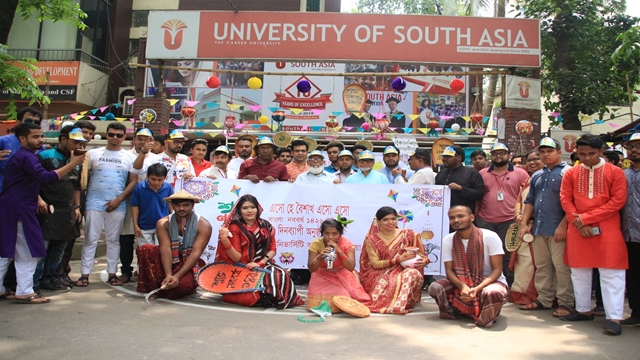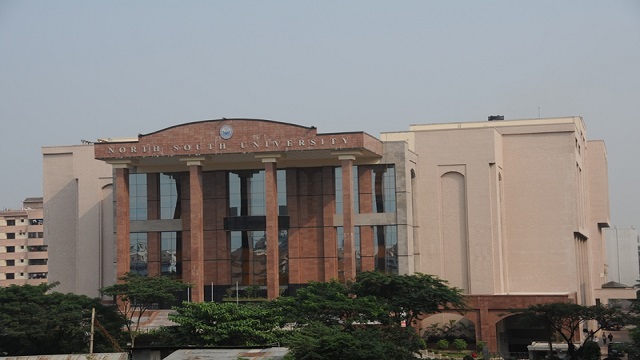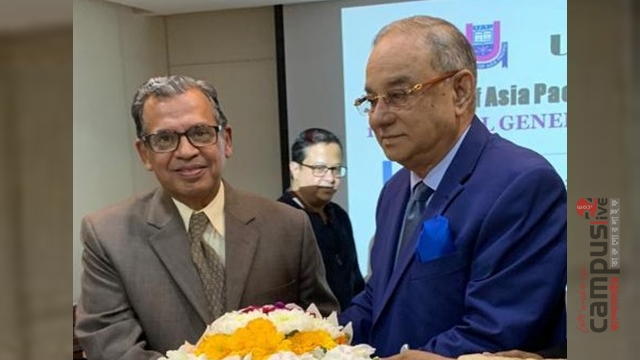NSU; Its Vision, Significance and Practices in the Bay of Bengal”
Published:
2022-11-02 07:45:43 BdST
Update:
2024-04-25 18:19:03 BdST

NSU Live: A Lecture Program by Professor Takahara Akio on “Towards a Free and Open Indo-Pacific: Its Vision, Significance and Practices in the Bay of Bengal” was held online on October 27, 2022. Professor Takahara Akio is a Professor of the Graduate Schools for Law and Politics, University of Tokyo. This program was jointly organized by the South Asian Institute of Policy and Governance (SIPG) of North South University (NSU) and the Embassy of Japan in Bangladesh.
In his lecture, Professor Takahara discussed the role Japan can play to avoid deepening divisions and conflicts in the world. He pointed out that Japan is playing a significant role in promoting human security and “Free and Open Indo-Pacific (FOIP)”.
He stated that FOIP aims at extending the stability and prosperity of East Asia to South Asia and West Asia as well as Africa. He also elaborated three pillars of FOIP; (1) commitment for peace and stability, (2) promotion and establishment of the rule of law, freedom of navigation, free trade, and (3) pursuit of economic prosperity.
Having said that, Professor Takahara introduced various cooperative projects conducted by JICA to realize FOIP including maritime safety and security policy program. He also pointed out that FOIP is not for countering the “Belt and Road Initiative (BRI)”, rather they can be compatible particularly in the economic field.
With regard to the relationship with China, Professor Takahara noted that there are two aspects - fragility and resilience -, and mentioned that Japan can respond to China by two-pronged approach: Competition and Cooperation. He lastly reiterated that the realization of FOIP is important for maintaining rule-based order and bolstering peace, stability and prosperity in the Indo-Pacific region and beyond.
Mr. Ito Naoki, Ambassador of Japan to Bangladesh, graced the program as the Guest of Honor. He mentioned that it is increasingly important to ensure a rule-based international order as we face new challenges in the world. In this context, he commended Bangladesh for voting in favor of the UN General Assembly resolution on the territorial integrity of Ukraine from the perspective of respecting the principles of the UN Charter.
Ambassador Ito also appreciated the progress of JICA’s infrastructure projects under the ‘BIG-B’ initiative launched by Honorable Prime Minister Sheikh Hasina and late Prime Minister Abe Shinzo in 2014. He expressed his hope to elevate bilateral relations from the ‘comprehensive partnership’ to the ‘strategic partnership’, so that Japan and Bangladesh can start bilateral cooperation in new areas such as defense sector.
Dr. M Jashim Uddin, Associate Professor, Dept. of Political Science and Sociology, and Faculty of SIPG, NSU was made the discussant for today’s event.
Dr. Uddin raised the question of the ideological clash between democracy and authoritarianism. By using the Russian-Ukrainian war as an example, he asked who should be responsible for the suffering of the people and the potential famine that people may face in 2023 across the globe.
Also during the discussion, Dr. Uddin argued that Bangladesh cannot afford to side with any particular bloc, and the country should continue to stick with its foreign policy tradition, i.e. ‘Friendship to All, Malice to None’. He also mentioned that there is nothing harmful to Bangladesh to join Japan’s FOIP or Biden’s IPEF, as long as joining them can bring tangible economic benefits to Bangladesh.
He also suggested that Japan and other countries in the free world should be more proactive in promoting human rights, the rule of law, and global peace. Dr. Uddin considered Japan-Bangladesh relations important and argued there are lots of opportunities for collaboration, especially the trading relationship. Finally, Dr. Uddin appreciated Prof. Takahara’s advocacy of human security as a way forward to promote human rights, rule of law, and global peace.
Professor Atiqul Islam, Vice-Chancellor of North South University, chaired the webinar. He highlighted the interests that big powers are showing in the Bay of Bengal and expressed hope that Bangladesh will successfully be able to balance its tactics in this regard.
Professor Sk. Tawfique M. Haque, Director, SIPG & Chair, Dept. of Political Science and Sociology, NSU moderated this virtual event. He stated the importance of the Bay of Bengal for the economic development of Bangladesh. He also emphasized the geostrategic importance of the Bay of Bengal and Bangladesh to become a regional hub of connectivity in the Indo-Pacific Ocean region.
Academics, Excellences, marine economy experts, diplomats, Japanese delegates, journalists, and students were present among the participants.
Dhaka, 01 November (campuslive24.com)//AIT
Topic:









Share Your Valuable Comments: